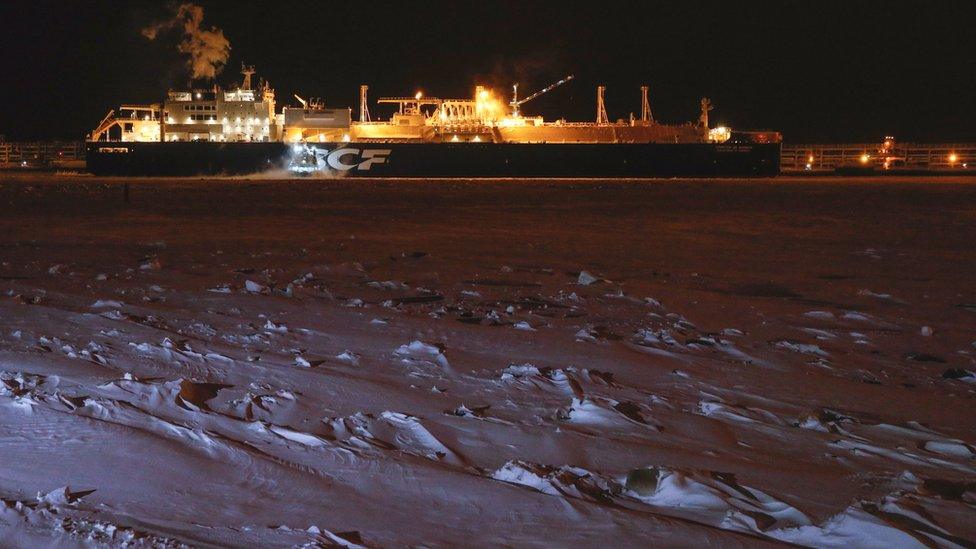China to develop Arctic shipping routes opened by global warming
- Published

Last year, a Russian tanker travelled the northern route from Norway to South Korea without an icebreaker escort for the first time
China has announced plans to develop shipping lanes through the Arctic to become a "Polar Silk Route".
Beijing said global warming meant viable shipping routes through the Arctic would become increasingly important for international trade.
It said China would work with Russia and other Arctic countries to develop the polar route.
It is part of an ambitious bigger scheme to transform China's land and sea connections to Europe and beyond.
President Xi Jinping's $1tn (Ā£700bn) Belt and Road Initiative seeks to rebuild much of Eurasia's infrastructure of ports, roads and rails, and put China at its centre.
Global warming is - ironically, some observers say, given industry's role in creating it - opening the world up to more potential business opportunities.
Last August, a Russian tanker travelled from Norway to South Korea without an icebreaker escort for the first time.
"China hopes to work with all parties to build a 'Polar Silk Road' through developing the Arctic shipping routes," China said in its first official policy paper on the polar region.
It said every country's "rights to use the Arctic shipping routes should be ensured".
While the US and Europe look inward, China is assuming a global leadership role
The north-east passage offers China a faster sea route to many ports than the current routes using, in many cases, the Suez or Panama canals.
The new route could take 20 days off the 48 days it currently takes to get to Rotterdam from China via the Suez Canal, estimates suggest.
Fears that China wants to plunder Arctic resources or damage the environment were "absolutely unnecessary", Vice Foreign Minister Kong Xuanyou said, according to Reuters news agency.
The paper does acknowledge China's interests in oil and gas, minerals, fishing and other resources in the region, but it expresses an interest in developing them co-operatively with other nations and Arctic states.
The paper encourages businesses to build infrastructure and conduct commercial trial voyages in the Arctic.
- Published14 May 2017
- Published17 October 2017